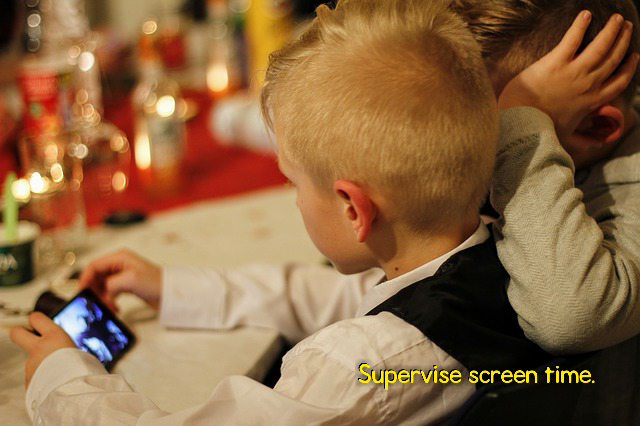Parenting is never an effortless task; it always comes with the conscious realization that we, parents, are raising individuals who will one day become grown-ups tasked to make their own decisions and lead their own lives.

Jeff and I are not perfect parents but I write this post to share how we run our army of 12 children (feels like it when you have three mutants who are three and one) in a manner that we are too stressed, too exhausted and too beat up as parents.
Here are some of the tasks and habits that we follow at home to teach children life skills, values and chores:
1. Show them how it’s done.
Antoinette was two years old when Jeff started to bring her to the kitchen to let the little girl observe him cook breakfast. Before she turned three years old, she already knew the basic ingredients and utensils needed in making scrambled eggs. She also sets the table. All these she learned from watching/observing how her Dad fulfills tasks.
2. Avoid baby talk
Talk to them the way you talk to adults. We have a tendency to use the “motherese” language of a high-pitch tone, incomprehensible terms of endearment and muddle our words when we talk to our cutie pies. Please… resist the urge. But if you have to and feels that you need, do it sparingly. Do not make a habit out of it. Children are great at mimicking what adults say especially when they are still in the stage of learning new words.
3. Take them to the market
One of my favorite Sunday afternoon routine is taking my children to the market. I get to have real life classes in fish stalls and vegetable stands. We point at colors, shapes and sizes when we buy fish. We discuss numbers when we buy pork and chicken thanks to the weighing scale. We also categorize fruits, vegetables and meats. Last Sunday, Nicholas was in awe of the sweet corn, carrots and fish he saw in the market because of “so many colors.” “Nanay, let’s go home but don’t forget the red apples,” said Nicholas.
4. Supervise screen time
DO NOT – and I mean DO NOT – leave your children infront of a computer, laptop or iPad. These gadgets are not babysitters. The idiot box, otherwise known as television, is nowhere the same. When you play a movie, it’s good to be around so you can readily answer their questions. A very important reminder: prior to showing the movie to your children, make sure you had your own private viewing first so you know what kind of movies are you showing your children.
5. Have a nightly program
After bathing, brushing of teeth and putting on diapers, proceed to the room with the children in their pajamas. Begin by saying “The first part of our program is a choral singing by….” They’ll eventually warm up and will perform duets, trio and story recitation. What I love most about this exercise is that you are teaching them confidence, vocabulary and good diction.
6. Read at least one story every day
It only takes 10 minutes to read a storybook to your child. That’s not even a fraction of the time we devote to catching up on a new episode of the TV series that we love to watch! Consistent with my other posts, I highly recommend exposing children to books than tablets or iPads. Exposure to physical books makes them more attentive, widens their imagination and encourages parent-child bonding.
Anyone else out there willing to share their parenting notes?









